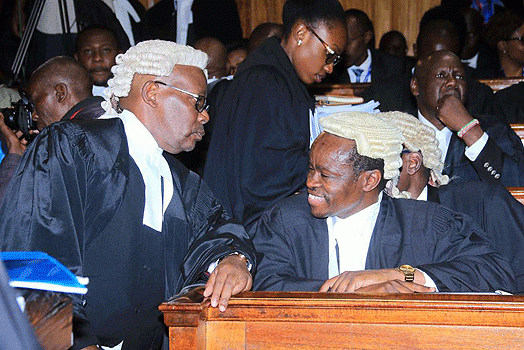Kwame Nkrumah’s Speech at the Founding Meeting of the OAU in Addis Ababa, Ethiopia, May 24, 1963.
"I am happy to be here in Addis Ababa on this most historic occasion. I bring with me the hopes and fraternal greetings of the government and people of Ghana. Our objective is African union now. There is no time to waste. We must unite now or perish. I am confident that by our concerted effort and determination, we shall lay here the foundations for a continental Union of African States. A whole continent has imposed a mandate upon us to lay the foundation of our union at this conference. It is our responsibility to execute this mandate by creating here and now, the formula upon which the requisite superstructure may be On this continent, it has not taken us long to discover that the struggle against colonialism does not end with the attainment of national independence. Independence is only the prelude to a new and more involved struggle for the right to conduct our own economic and social affairs; to construct our society according to our aspirations, unhampered by crushing and humiliating neo-colonialist controls and interference. From the start we have been threatened with frustration where rapid change is imperative and with instability where sustained effort and ordered rule are indispensable. No sporadic act nor pious resolution can resolve our present problems. Nothing will be of avail, except the united act of a united Africa. We have already reached the stage where we must unite or sink into that condition which has made Latin America the unwilling and distressed prey of imperialism after one-and-a-half centuries of political independence. As a continent, we have emerged into independence in a different age, with imperialism grown stronger, more ruthless and experienced, and more dangerous in its international associations. Our economic advancement demands the end of colonialist and neo-colonialist domination of Africa. But just as we understood that the shaping of our national destinies required of each of us our political independence and bent all our strength to this attainment, so we must recognise that our economic independence resides in our African union and requires the same concentration upon the political achievement. The unity of our continent, no less than our separate independence, will be delayed if, indeed, we do not lose it, by hobnobbing with colonialism. African unity is, above all, a political kingdom which can only be gained by political means. The social and economic development of Africa will come only within the political kingdom, not the other way round. Is it not unity alone that can weld us into an effective force, capable of creating our own progress and making our valuable contribution to world peace? Which independent African state, which of you here, will claim that its financial structure and banking institutions are fully harnessed to its national development? Which will claim that its material resources and human energies are available for its own national aspirations? Which will disclaim a substantial measure of disappointment and disillusionment in its agricultural and urban development? In independent Africa, we are already re-experiencing the instability and frustration which existed under colonial rule. We are fast learning that political independence is not enough to rid us of the consequences of colonial rule. The movement of the masses of the people of Africa for freedom from that kind of rule was not only a revolt against the conditions which it imposed. Our people supported us in our fight for independence because they believed that African governments could cure the ills of the past in a way which could never be accomplished under colonial rule."


Comments
Post a Comment